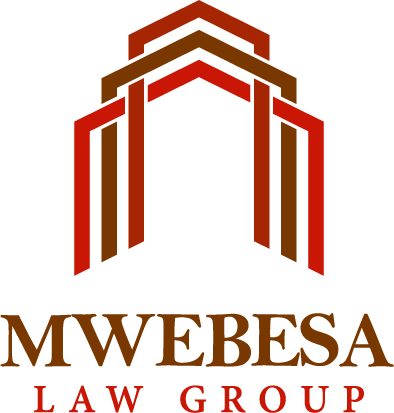He who comes to equity must come with clean hands!
A tax refund is the amount of money returned (Reimbursed)by the government to taxpayers who have paid tax in excess during a specific period. This applies to Value Added Tax (VAT), Income Tax, and or other taxes paid than they actually owe. For example, exporters often qualify for VAT refunds because their products are zero-rated. This means they can reclaim the VAT paid on goods and services purchased for their operations.
Tanzania’s tax laws provide for tax refunds under Section 71 of the Tax Administration Act, 2019. This section allows taxpayers to apply to the Commissioner General of the Tanzania Revenue Authority (TRA) for a refund of any excess taxes paid. Taxpayers can request that the overpaid amount be reimbursed to them, ensuring fairness in the tax system.
There are several types of tax refunds, as outlined below:
- VAT REFUNDS;
A taxpayer is eligible for a VAT refund if the VAT paid on purchases and imports (input VAT) exceeds the VAT collected from sales to customers (output VAT) over six consecutive accounting periods. Input VAT arises from taxes paid on business purchases, while output VAT is the tax collected on sales and remitted to the government. When input VAT consistently surpasses output VAT, it creates a refundable balance, often due to high procurement costs, exports, or reduced sales. This refund system helps businesses maintain cash flow and ensures fairness in the VAT process. This is governed by the VAT act.
Further to the above, the VAT refund has categories that are as hereunder;
- Carrying forward negative amounts; VAT-registered persons can carry forward VAT payable and credits from previous tax periods in chronological order, starting with the oldest. The process continues until the balance is reduced to zero. If the carried-forward credits persist for six consecutive tax periods and meet or exceed the minimum amount specified in regulations, the taxpayer may apply for a refund. Alternatively, they can continue carrying forward the unadjusted amount until it is fully utilized or a refund application is submitted.
- A VAT refund without carrying forward a negative balance if 50% or more of their turnover comes from zero-rated supplies, or if 50% or more of their input VAT is tied to acquisitions or imports for zero-rated supplies. Taxable persons may choose to apply for a refund immediately or carry the balance forward under Section 81 of the VAT Act, until they decide to request a refund.
The application for refund should be made to the Commissioner General through VAT form accompanied with the following documents/information: –
- Certificate of genuineness
- The certificate of genuineness shall be issued by an auditor who has been registered by National Board of Accountants and Auditors and who is registered as a tax consultant with TRA;
- Computation of the refund amount;
- Checklist for the applicant’s value added tax repayment;
- Airway bill/Bill of Lading;
- Road consignment note;
- Landing certificate;
- EFDs receipts/invoices; and
- Any other information as Commissioner General may require.
2. CUSTOM DUTY REFUNDS;
This refers to a tax charged on goods moved across international borders. In Tanzania, this tax is regulated by the Customs Management Act, 2019, and its Regulations. However, certain goods are either exempt from tax or zero-rated, such as agricultural inputs, educational materials, and fishing equipment.
Under custom duty, there are the following scenarios that a person can claim for refunds;
2.1. If duty has been paid on goods that were damaged or lost during transit or destroyed while under customs control, the taxpayer can apply for a refund. This is done using Application Form No. C53, submitted in duplicate. The application must include evidence proving the damage, loss, or destruction and be submitted to the appropriate customs officer. However, the refund shall not apply to goods declared for transfer or in respect of notification of intention to transfer has been given.
2.2. Refund of duty paid in error, deposit or cancellation;
This claim arises when duty has been overpaid. To request a refund, the taxpayer must complete Form No. C54 in duplicate and provide evidence to prove the overpayment. The application should be submitted to the appropriate officer at the location where the excess payment was made. In addition, anyone requesting a refund of a deposit or the cancellation of a bond provided as security must submit an application using Form No. C39. The application should include supporting evidence and be submitted to the appropriate officer at the location where the deposit was made or the security was provided. Time limitation to apply for Custom duty refund is twelve (12) months from the date of the payment of the duty. This is as per section 123 subsection 2 of the Custom Management Act.
- PROCEDURES TO COMPLY WITH WHEN APPLYING FOR TAX REFUNDS TO COMMISSIONER FOR TRA
Under Section 71(1) of the Tax Administration Act, taxpayers have the right to apply for a refund of any excess taxes paid. This application must be submitted to the Commissioner General of the Tanzania Revenue Authority (TRA) within three years from the date the overpayment occurred.
To support the application, taxpayers must provide accurate details of the tax amount that should have been paid, along with sufficient documentary evidence to substantiate the claim. The supporting documents should include all relevant records considered during the initial tax assessment, ensuring the claim is well-founded and verifiable. This process ensures that taxpayers can recover overpaid taxes while maintaining compliance with legal requirements.
Therefore, A taxable person who has paid more than the net amount for a tax period may apply for a refund provided that the application is made within 3 years as per section 84 of the VAT Act after overpayment. - CHALLENGES AND RECOMMENDATION.
Where the Commissioner General allows a refund, the refund shall not be paid unless the applicant has filed all value added tax returns which the applicant is required to file and the Commissioner General may apply the refund first in reduction of any outstanding liability of the person for taxes payable under the Value Added Tax Act or under another tax law, including any interest, penalties, or fines payable under the Value Added Tax Act or under that tax law.
Although the government has implemented measures to ensure that all taxes paid are fair and justified, challenges remain regarding the time it takes to process tax refunds. The delay is often due to the Tanzania Revenue Authority (TRA) conducting thorough verification audits to confirm, with absolute certainty, that the taxpayer is entitled to the refund. This meticulous process, while necessary, can significantly extend the refund timeline. We recommend that the tax refund process be reviewed to ensure it is expedited, minimizing delays and preventing disruptions to taxpayers’ cash flow.
This analysis is for informational purposes and should not be considered legal advice. For specific legal concerns, please consult with a qualified professional.

